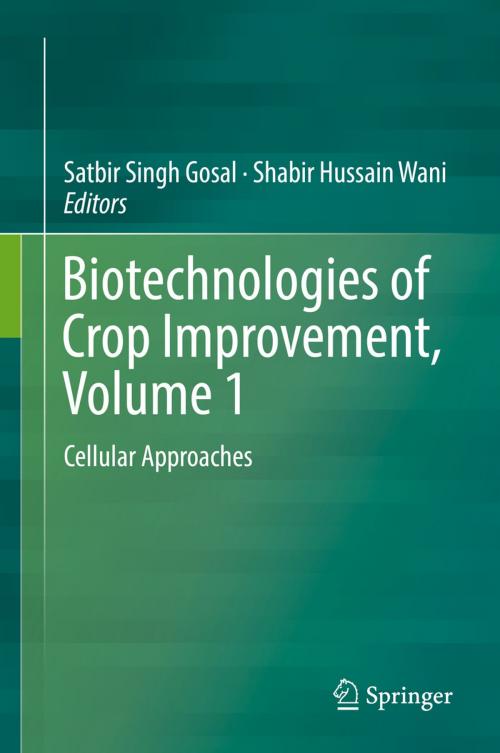Biotechnologies of Crop Improvement, Volume 1
Cellular Approaches
Nonfiction, Science & Nature, Science, Biological Sciences, Botany, Genetics| Author: | ISBN: | 9783319782836 | |
| Publisher: | Springer International Publishing | Publication: | June 22, 2018 |
| Imprint: | Springer | Language: | English |
| Author: | |
| ISBN: | 9783319782836 |
| Publisher: | Springer International Publishing |
| Publication: | June 22, 2018 |
| Imprint: | Springer |
| Language: | English |
During the past 15 years, cellular and molecular approaches have emerged as valuable adjuncts to supplement and complement conventional breeding methods for a wide variety of crop plants. Biotechnology increasingly plays a role in the creation, conservation, characterization and utilization of genetic variability for germplasm enhancement. For instance, anther/microspore culture, somaclonal variation, embryo culture and somatic hybridization are being exploited for obtaining incremental improvement in the existing cultivars. In addition, genes that confer insect- and disease-resistance, abiotic stress tolerance, herbicide tolerance and quality traits have been isolated and re-introduced into otherwise sensitive or susceptible species by a variety of transgenic techniques. Together these transformative methodologies grant access to a greater repertoire of genetic diversity as the gene(s) may come from viruses, bacteria, fungi, insects, animals, human beings, unrelated plants or even be artificially derived. Remarkable achievements have been made in the production, characterization, field evaluation and commercialization of transgenic crop varieties worldwide. Likewise, significant advances have been made towards increasing crop yields, improving nutritional quality, enabling crops to be raised under adverse conditions and developing resistance to pests and diseases for sustaining global food and nutritional security. The overarching purpose of this 3-volume work is to summarize the history of crop improvement from a technological perspective but to do so with a forward outlook on further advancement and adaptability to a changing world. Our carefully chosen “case studies of important plant crops” intend to serve a diverse spectrum of audience looking for the right tools to tackle complicated local and global issues.
During the past 15 years, cellular and molecular approaches have emerged as valuable adjuncts to supplement and complement conventional breeding methods for a wide variety of crop plants. Biotechnology increasingly plays a role in the creation, conservation, characterization and utilization of genetic variability for germplasm enhancement. For instance, anther/microspore culture, somaclonal variation, embryo culture and somatic hybridization are being exploited for obtaining incremental improvement in the existing cultivars. In addition, genes that confer insect- and disease-resistance, abiotic stress tolerance, herbicide tolerance and quality traits have been isolated and re-introduced into otherwise sensitive or susceptible species by a variety of transgenic techniques. Together these transformative methodologies grant access to a greater repertoire of genetic diversity as the gene(s) may come from viruses, bacteria, fungi, insects, animals, human beings, unrelated plants or even be artificially derived. Remarkable achievements have been made in the production, characterization, field evaluation and commercialization of transgenic crop varieties worldwide. Likewise, significant advances have been made towards increasing crop yields, improving nutritional quality, enabling crops to be raised under adverse conditions and developing resistance to pests and diseases for sustaining global food and nutritional security. The overarching purpose of this 3-volume work is to summarize the history of crop improvement from a technological perspective but to do so with a forward outlook on further advancement and adaptability to a changing world. Our carefully chosen “case studies of important plant crops” intend to serve a diverse spectrum of audience looking for the right tools to tackle complicated local and global issues.















